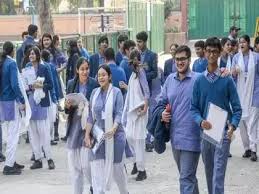DUBAI: From investment deals to climate goals, cross-border collaboration to multi-national festivals, the first three months of Expo 2020 Dubai have seen a plethora of link-ups between countries, organisations, and artists, showing that Expo is truly exemplifying its theme, ‘Connecting Minds, Creating the Future’.
In early October, Uganda signed business deals worth USD 650 million while in the first two weeks of Expo 2020, Malaysia generated more than USD 1.7 billion in agreements. In October, the Brazilian state of São Paulo announced USD 1.1 billion of new investment deals with the UAE and San Marino and Brazil signed a memorandum of understanding on tourism.
The UAE’s Golden Jubilee celebrations in early December proved to be a boon for deals. French President Emmanuel Macron visited Expo 2020 on 3 December, meeting His Highness Sheikh Mohamed bin Zayed Al Nahyan, Crown Prince of Abu Dhabi and Deputy Supreme Commander of the UAE’s Armed Forces, thereafter signing a series of agreements to benefit both France and the UAE, while Maharashtra Week resulted in USD 2 billion of investment deals for the Indian state.
Expo’s Programme for People and Planet is convening global stakeholders to contribute expertise, content, and best practices to encourage international cooperation on the world’s most pressing challenges. It has already hosted five Theme Weeks and sparked a raft of agreements and action-led pledges.
Nadia Verjee, Chief of Staff, and Chief of Programme for People and Planet, Expo 2020 Dubai, said: “It has always been Expo’s purpose to connect minds to create a brighter future – a goal based on the belief that innovative solutions and progress are the result of people and ideas coming together in inspiring new ways.
“Expo has brought together change-makers from around the world – individuals and organisations who are working together to drive positive impact. We are thrilled to see so many tangible agreements so far, and look forward to many more collaborations, deals and alliances in the next three months.”
At Climate & Biodiversity Week from 3-9 October, the UAE announced its Net Zero 2050 Strategic Initiative, which will see more than 163 billion US dollars being invested in clean and renewable energy to meet the country’s mid-century target.
Staying with this theme, on 22 November, the governments of Jordan, Israel and the UAE signed a landmark declaration, committing to building renewable electricity and water desalination capacity in the region to address the challenges posed by climate change and water scarcity.
Witnessing the signing, John Kerry, US Special Presidential Envoy for Climate, praised the deal, describing it as “a welcome example of how cooperation can accelerate the energy transition and build greater resilience to the impacts of climate change.”
At Space Week, from 17-23 October, the UAE Space Agency said it would work with strategic partners to develop programmes permitting private sector investment in space. On 20 October, the UAE Space Agency signed a Memorandum of Understanding with the Israel Space Agency that could see the flags of both countries planted on the moon by 2024, and provide a framework for a mutually beneficial strategic partnership to strengthen efforts to gather and analyse scientific space data.
In addition, on 19 October, Curtin University and the UAE University revealed joint plans to develop the region’s first radio array observatory in Al Ain, through a strategic research-and-development collaboration between Australia and the UAE.
During Urban & Rural Development Week, from 31 October-6 November, the UN unveiled the Last Mile Delivery Roadmap – a blueprint for an inclusive, localised approach to make informal settlements safe and sustainable.
In November, during Expo’s Tolerance & Inclusivity week, the Te Aratini, a Festival of Indigenous and Tribal Ideas was hosted, the first at a World Expo. The three-day event saw Aotearoa New Zealand collaborate with the UAE, Australia, Canada, the United States, Malaysia, Paraguay and Panama to ignite new connections and forge partnerships to address the issues facing our world today.
Expo 2020 also saw the opening of the Joint World Summit of Religions at the Italy Pavilion, which brought together scholars, clerics and intellectuals to promote dialogue between different religions.
Expo’s most recent Theme Week – focusing on Knowledge & Learning and running from 12-18 December – saw a number of education agreements. Financing for education in 37 countries of the Organization of Islamic Cooperation, worth half a billion dollars, was agreed at the RewirEd Summit hosted by Dubai Cares on 14 December. Called the Smart Education Financing Initiative, the programme aims to assist 28 million children who are not in school.
On 12 December, Accenture, Expo’s Digital Services Partner – along with Dubai Cares, Microsoft and UNICEF – announced the launch of a global, digital learning platform for young people aged 15-24 across the world with free, certified education and skills training.
Expo 2020 has also witnessed an array of artistic and cultural collaborations, from a cross-continent art exhibition between Malta and the UAE; a fashion week, organised by the Mexico Pavilion that showcased designs from around the world on runways in the pavilions of Israel, Switzerland, Thailand and the USA; and a Portuguese language festival that united performers from Portugal, Angola, Brazil, Mozambique, São Tomé and Príncipe and Timor-Leste.
One of the biggest announcements was the collaboration between world-renowned filmmaker Shekhar Kapur, and Academy and Grammy award-winning musical composer A.R. Rahman, to create Why? The Musical, which will premiere at Al Wasl Plaza in January 2022.
The most inclusive and diverse World Expo ever, Expo 2020 runs for six months, with more fruitful collaborations expected before the event ends on 31 March 2022.
































